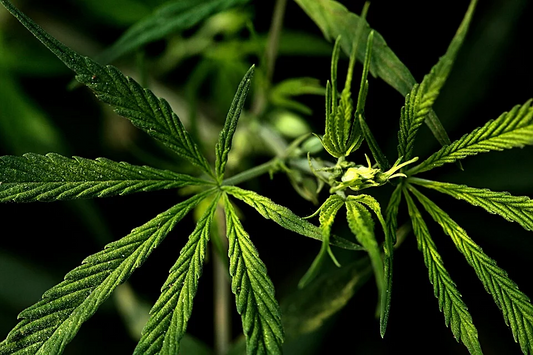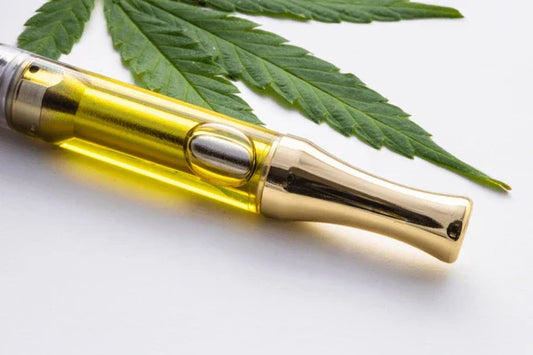-

Purple Dank Strain Profile Premium Terpenes - Zkittles
SALE OR RETURN GUARANTEE available for this product!Return within 120 days if unsold (see terms...SALE OR RETURN GUARANTEEPurple Dank Strain Profile Premium Terpenes - Zkittles
SALE OR RETURN GUARANTEE available for this product!Return within 120 days if unsold (see terms...SALE OR RETURN GUARANTEELogin to view price -

Purple Dank Strain Profile Premium Terpenes - Tangie
SALE OR RETURN GUARANTEE available for this product!Return within 120 days if unsold (see terms...SALE OR RETURN GUARANTEEPurple Dank Strain Profile Premium Terpenes - Tangie
SALE OR RETURN GUARANTEE available for this product!Return within 120 days if unsold (see terms...SALE OR RETURN GUARANTEELogin to view price -

Purple Dank Strain Profile Premium Terpenes - Stardawg
SALE OR RETURN GUARANTEE available for this product!Return within 120 days if unsold (see terms...SALE OR RETURN GUARANTEEPurple Dank Strain Profile Premium Terpenes - Stardawg
SALE OR RETURN GUARANTEE available for this product!Return within 120 days if unsold (see terms...SALE OR RETURN GUARANTEELogin to view price -

Purple Dank Strain Profile Premium Terpenes - Sour Diesel
SALE OR RETURN GUARANTEE available for this product!Return within 120 days if unsold (see terms...SALE OR RETURN GUARANTEEPurple Dank Strain Profile Premium Terpenes - Sour Diesel
SALE OR RETURN GUARANTEE available for this product!Return within 120 days if unsold (see terms...SALE OR RETURN GUARANTEELogin to view price -

Purple Dank Strain Profile Premium Terpenes - Pineapple Express
SALE OR RETURN GUARANTEE available for this product!Return within 120 days if unsold (see terms...SALE OR RETURN GUARANTEEPurple Dank Strain Profile Premium Terpenes - Pineapple Express
SALE OR RETURN GUARANTEE available for this product!Return within 120 days if unsold (see terms...SALE OR RETURN GUARANTEELogin to view price -

Purple Dank Strain Profile Premium Terpenes - OG Kush
SALE OR RETURN GUARANTEE available for this product!Return within 120 days if unsold (see terms...SALE OR RETURN GUARANTEEPurple Dank Strain Profile Premium Terpenes - OG Kush
SALE OR RETURN GUARANTEE available for this product!Return within 120 days if unsold (see terms...SALE OR RETURN GUARANTEELogin to view price -

Purple Dank Strain Profile Premium Terpenes - Mango Kush
SALE OR RETURN GUARANTEE available for this product!Return within 120 days if unsold (see terms...SALE OR RETURN GUARANTEEPurple Dank Strain Profile Premium Terpenes - Mango Kush
SALE OR RETURN GUARANTEE available for this product!Return within 120 days if unsold (see terms...SALE OR RETURN GUARANTEELogin to view price -

Purple Dank Strain Profile Premium Terpenes - Limoncello
SALE OR RETURN GUARANTEE available for this product!Return within 120 days if unsold (see terms...SALE OR RETURN GUARANTEEPurple Dank Strain Profile Premium Terpenes - Limoncello
SALE OR RETURN GUARANTEE available for this product!Return within 120 days if unsold (see terms...SALE OR RETURN GUARANTEELogin to view price -

Purple Dank Strain Profile Premium Terpenes - Grand Daddy Purple
SALE OR RETURN GUARANTEE available for this product!Return within 120 days if unsold (see terms...SALE OR RETURN GUARANTEEPurple Dank Strain Profile Premium Terpenes - Grand Daddy Purple
SALE OR RETURN GUARANTEE available for this product!Return within 120 days if unsold (see terms...SALE OR RETURN GUARANTEELogin to view price -

Purple Dank Strain Profile Premium Terpenes - Girl Scout Cookies
SALE OR RETURN GUARANTEE available for this product!Return within 120 days if unsold (see terms...SALE OR RETURN GUARANTEEPurple Dank Strain Profile Premium Terpenes - Girl Scout Cookies
SALE OR RETURN GUARANTEE available for this product!Return within 120 days if unsold (see terms...SALE OR RETURN GUARANTEELogin to view price -

Purple Dank Strain Profile Premium Terpenes - Gelato
SALE OR RETURN GUARANTEE available for this product!Return within 120 days if unsold (see terms...SALE OR RETURN GUARANTEEPurple Dank Strain Profile Premium Terpenes - Gelato
SALE OR RETURN GUARANTEE available for this product!Return within 120 days if unsold (see terms...SALE OR RETURN GUARANTEELogin to view price -

Purple Dank Strain Profile Premium Terpenes - Bubblegum OG
SALE OR RETURN GUARANTEE available for this product!Return within 120 days if unsold (see terms...SALE OR RETURN GUARANTEEPurple Dank Strain Profile Premium Terpenes - Bubblegum OG
SALE OR RETURN GUARANTEE available for this product!Return within 120 days if unsold (see terms...SALE OR RETURN GUARANTEELogin to view price -

UK Flavour Pure Terpenes Balanced - 10ml
- Pure Flavoured Terpenes- Crossbreed Based- 10ml Flavours GelatoGelato, aka Larry Bird, is A ...UK Flavour Pure Terpenes Balanced - 10ml
- Pure Flavoured Terpenes- Crossbreed Based- 10ml Flavours GelatoGelato, aka Larry Bird, is A ...Login to view price -

UK Flavour Pure Terpenes Indica - 10ml
- Pure Flavoured Terpenes- Indica based - 10ml Flavours Banana KushBanana kush is a hybrid stra...UK Flavour Pure Terpenes Indica - 10ml
- Pure Flavoured Terpenes- Indica based - 10ml Flavours Banana KushBanana kush is a hybrid stra...Login to view price -

UK Flavour Pure Terpenes Sativa - 10ml
- Pure Flavoured Terpenes- Sativa Based- 10mlFlavours: Alien OG Amnesia Haze Blood Orange ...UK Flavour Pure Terpenes Sativa - 10ml
- Pure Flavoured Terpenes- Sativa Based- 10mlFlavours: Alien OG Amnesia Haze Blood Orange ...Login to view price -

UK Flavour Pure Terpenes Sativa - 5ml
- Pure Flavoured Terpenes- Sativa Based- 5mlFlavours Lemon Skunk:Lemon Skunk was bred from two...UK Flavour Pure Terpenes Sativa - 5ml
- Pure Flavoured Terpenes- Sativa Based- 5mlFlavours Lemon Skunk:Lemon Skunk was bred from two...Login to view price -

UK Flavour Pure Terpenes Sativa - 2.5ml
- Pure Flavoured Terpenes- Sativa Based- 2.5mlFlavours Lemon Skunk:Lemon Skunk was bred from t...UK Flavour Pure Terpenes Sativa - 2.5ml
- Pure Flavoured Terpenes- Sativa Based- 2.5mlFlavours Lemon Skunk:Lemon Skunk was bred from t...Login to view price -

UK Flavour Pure Terpenes Balanced - 5ml
- Pure Flavoured Terpenes- Crossbreed Based- 5ml Flavours GelatoGelato, aka Larry Bird, is A w...UK Flavour Pure Terpenes Balanced - 5ml
- Pure Flavoured Terpenes- Crossbreed Based- 5ml Flavours GelatoGelato, aka Larry Bird, is A w...Login to view price -

UK Flavour Pure Terpenes Indica - 5ml
- Pure Flavoured Terpenes- Indica based - 5ml Flavours Banana KushBanana kush is a hybrid strai...UK Flavour Pure Terpenes Indica - 5ml
- Pure Flavoured Terpenes- Indica based - 5ml Flavours Banana KushBanana kush is a hybrid strai...Login to view price -

UK Flavour Pure Terpenes Indica - 2.5ml
- Pure Flavoured Terpenes- Indica based - 2.5ml Flavours Banana KushBanana kush is a hybrid str...UK Flavour Pure Terpenes Indica - 2.5ml
- Pure Flavoured Terpenes- Indica based - 2.5ml Flavours Banana KushBanana kush is a hybrid str...Login to view price -

UK Flavour Pure Terpenes Balanced 2.5ml
- Pure Flavoured Terpenes- Crossbreed Based- 2.5ml Flavour GelatoGelato, aka Larry Bird, is A ...UK Flavour Pure Terpenes Balanced 2.5ml
- Pure Flavoured Terpenes- Crossbreed Based- 2.5ml Flavour GelatoGelato, aka Larry Bird, is A ...Login to view price
Wholesale Terpenes Q & A
What are the main types of terpenes?
There are over 20,000 terpenes in existence, with more than 110 found in the cannabis plant alone. Some of the more common types include Myrcene (found in mangoes, thyme, and lemongrass), Pinene (found in pine trees and rosemary), Limonene (found in citrus fruits), and Linalool (found in lavender). Each terpene has its own unique set of potential benefits and aromas.
How are terpenes extracted from plants?
Terpenes are typically extracted from plants through a process called steam distillation, which involves passing steam through plant material to vaporise the volatile compounds, including terpenes. The vapor is then condensed, and the essential oil (containing the terpenes) is separated from the water. Another common method is cold pressing, typically used for citrus peels.
How do terpenes interact with cannabinoids in the body?
Terpenes can modulate the effects of cannabinoids, compounds found in cannabis like THC and CBD, in what's known as the entourage effect. Some terpenes may enhance the absorption of cannabinoids, modify their psychoactive effects, or influence their therapeutic effects. However, this interaction is complex and not yet fully understood.
What are the potential benefits of terpenes?
Terpenes have been studied for a variety of potential therapeutic benefits. Some have demonstrated anti-inflammatory, analgesic, or even anti-anxiety properties. For example, Myrcene may have sedative effects, while Limonene is associated with elevated mood and stress relief. However, more research is needed to fully understand these effects in humans.
Can terpenes be used in food and drinks?
Absolutely. Terpenes contribute significantly to the aroma and flavour of many foods and drinks. In fact, the food and beverage industry often uses extracted terpenes to enhance or create specific flavours and aromas. However, they should be used in moderation as they are potent compounds.
Can terpenes cause any side effects?
Generally, terpenes are considered safe, especially when consumed as part of a balanced diet. However, in concentrated forms, they can cause side effects like skin irritation or allergic reactions in sensitive individuals. As with any supplement, it's advisable to consult a healthcare provider before starting a regimen.
How are terpenes used in the perfume industry?
Terpenes are the aromatic compounds that make up the largest group of plant essential oils. They are key ingredients in the perfume industry, where they are used to create a wide variety of scents. For instance, Limonene is commonly used for its citrusy fragrance, Linalool for its floral scent, and Pinene for its fresh, pine-like aroma.
What are the environmental benefits of terpenes in biofuels?
Terpenes have shown promise in the biofuels industry as a renewable energy source. They are carbon-neutral, meaning they don't add additional carbon dioxide to the atmosphere, making them environmentally friendly. Moreover, terpenes like pinene and limonene are abundant and can be obtained from biomass waste, making terpene-based biofuels a sustainable alternative to fossil fuels.
How do terpenes contribute to the entourage effect in cannabis?
The entourage effect suggests that the compounds in cannabis, including terpenes and cannabinoids, work together synergistically to enhance the therapeutic effects of the plant. Some terpenes may enhance the absorption of cannabinoids, modify their psychoactive effects, or influence their therapeutic properties. However, more research is needed to fully understand these interactions.
How does the concentration of terpenes affect their function?
The concentration of terpenes can significantly influence their therapeutic effects. Low concentrations of certain terpenes might be insufficient to elicit a response, while higher concentrations could have more pronounced effects. Moreover, certain terpenes may have different effects at different concentrations. However, high concentrations of terpenes can also cause adverse effects, so they should be used judiciously.
What research is being conducted on the medicinal properties of terpenes?
There's a growing body of research investigating the medicinal properties of terpenes. Some studies suggest that terpenes may have anti-inflammatory, analgesic, antimicrobial, and even anticancer properties. Other studies are exploring their potential in managing conditions like anxiety, depression, and neurodegenerative disorders. However, many of these studies are preliminary, and more research is needed to establish these effects in clinical settings.
Can terpenes interact with other medications?
Terpenes can potentially interact with certain medications, altering their absorption, metabolism, or excretion. For instance, some terpenes may inhibit cytochrome P450 enzymes, which play a crucial role in drug metabolism. Therefore, individuals on medication should consult a healthcare provider before starting a terpene regimen.
Are there any risks associated with the use of terpenes?
While terpenes are generally considered safe, especially when consumed as part of a normal diet, they can cause adverse effects in certain situations. Some people may be allergic to specific terpenes and experience allergic reactions. In concentrated forms, certain terpenes may cause skin irritation, especially when applied topically without a carrier oil. As with any supplement, it's always best to consult a healthcare provider before starting a terpene regimen.
Are terpenes used in cosmetics?
Yes, terpenes are often used in cosmetics for their fragrant properties and potential skin benefits. Some terpenes have antimicrobial properties, making them beneficial in products like cleansers and toners. Others, like linalool, have calming properties and are used in relaxation-inducing products. However, because they are potent, they should be used in moderation and preferably diluted in a carrier oil.
How do I choose a terpene product?
Choosing a terpene product depends on your specific needs and preferences. Consider the source of the terpenes, whether they are naturally derived or synthetically produced, and the concentration of the terpenes. Also, ensure the product has been tested for purity and safety. If you're using terpenes for therapeutic purposes, you might want to consult a healthcare provider or a certified aromatherapist.
Can terpenes be used in pet products?
Yes, terpenes are used in pet products, particularly in those designed for calming and soothing effects. However, it's important to note that pets are more sensitive to terpenes and essential oils than humans, so they should be used in much lower concentrations. Always consult with a veterinarian before introducing terpenes into your pet's regimen.
How does terpene production vary among different strains of hemp?
Different strains of cannabis can have distinct terpene profiles, affecting their aroma, flavour, and potential therapeutic effects. This variation is due to differences in the plant's genetics, growing conditions, and maturity at the time of harvest. For example, some strains may have high levels of Myrcene, known for its earthy aroma, while others might be rich in Limonene, contributing a citrusy note.
Can terpenes be used in skincare products?
Yes, terpenes are used in skincare products due to their potential benefits for the skin. Some terpenes exhibit antimicrobial and anti-inflammatory properties, which may be beneficial for conditions like acne or eczema. Others, such as Linalool, have calming effects and may soothe irritated skin. However, because terpenes are potent, they should be used in moderate amounts and preferably diluted in a carrier oil.
Are there any regulations concerning the use of terpenes in products?
In the UK, the use of terpenes in products is regulated by agencies like the Food Standards Agency (FSA) and the European Food Safety Authority (EFSA). For food and beverage products, the terpenes used must be considered safe for consumption and fall within established guidelines. For cosmetic products, the European Cosmetics Regulation ensures that terpenes and other ingredients do not harm human health when used under normal conditions.
How do I store terpene products?
Terpenes should be stored in airtight containers to prevent oxidation and degradation. They should also be kept out of direct sunlight and stored in a cool, dark place. If stored properly, terpene products can last for a long time without losing their potency or aromatic qualities.
Are there any contraindications for using terpenes?
While terpenes are generally considered safe, there may be contraindications for individuals with certain medical conditions or for those taking specific medications. For instance, certain terpenes may lower blood pressure, so they should be used cautiously by those with hypotension. As always, it's recommended to consult a healthcare provider before starting a regimen with terpenes.
How are terpenes used in traditional medicine?
Terpenes have been used in traditional medicine for centuries due to their potential therapeutic properties. In aromatherapy, essential oils rich in terpenes are used for their calming, uplifting, or pain-relieving effects. In Ayurveda and Traditional Chinese Medicine, plant herbs high in terpenes are used to treat a variety of ailments, from digestive issues to respiratory conditions.
How do I use terpenes for aromatherapy?
Terpenes are the primary constituents of essential oils, which are commonly used in aromatherapy. Depending on the oil, they can be diffused into the air, inhaled directly, added to a bath, or diluted with a carrier oil and applied to the skin. Always follow the manufacturer's guidelines or consult with a professional aromatherapist.
How do terpenes influence the flavour of foods?
Terpenes play a crucial role in the organoleptic properties of foods and beverages. They contribute to the characteristic aromas and flavours of various fruits, herbs, and spices. For instance, the zesty flavour of citrus fruits is largely due to the terpene Limonene, while the distinct piney aroma of rosemary comes from Pinene.
Can terpenes be synthetically produced?
Yes, terpenes can be synthetically produced through chemical synthesis in a laboratory. However, synthetic terpenes are not identical to natural terpenes, as they may lack minor components present in the natural form, which could contribute to the overall effect of the compound. Synthetic terpenes are typically used in fragrances, flavours, and pharmaceuticals.
Can terpenes help with anxiety or stress?
Some research suggests that certain terpenes may have anti-anxiety or stress-relieving effects. For instance, Linalool, which is found in lavender, has been used in aromatherapy for its calming effects. Similarly, Limonene has been associated with elevated mood and stress relief. More research is needed to establish these effects clinically.
What do terpenes in CBD oil do?
The main role of terpenes is in adding aroma to plants. This includes cannabis. Terpenes can give CBD a richer scent and flavour. It may also, however, improve the effectiveness of your CBD in general when it is used for relaxation and pain relief. There is also some anecdotal evidence that it may make your uptake of CBD oil more effective by allowing it to reach the bloodstream more quickly.
Is CBD better with terpenes?
There is something called the entourage effect, which essentially means that when different compounds of the cannabis plant are able to work together, they are more effective than when CBD is isolated and has to work on its own. A CBD product that includes terpenes should lead to an enhanced response.
Is buying terpenes illegal?
In the UK, it is THC that would make a hemp product illegal. Provided that the THC has been removed or is close to non-existent, all of the other cannabis compounds are OK. That includes CBD, and it includes terpenes. You can buy it freely in wholesale volumes at discounted prices and you can resell it to consumers. They don't have to worry about it showing up in a drug test.
Can you buy terpenes in the UK?
If you buy full or broad spectrum CBD products in the UK, they will include all or most of the compounds of the cannabis plant, including terpenes. Provided that there is no THC, these products are perfectly legal. You may also be able to buy terpenes on their own to create your own blends. A wide range of CBD products with terpenes are available wholesale, all meeting the UK's regulatory standards.
What company makes the best terpenes?
We only stock the highest-quality wholesale terpenes products from some of the leading manufacturers in the UK. This includes products from UK Flavour and Plant of Life. Plant of Life alone has a wide range of different flavours so everyone can enjoy their preferred taste.


































